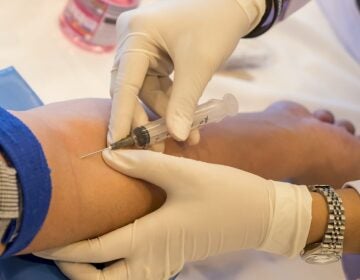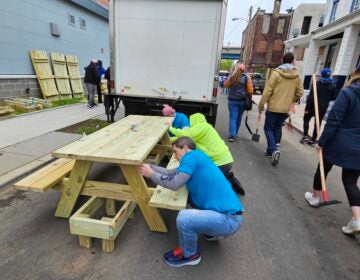COSACOSA crosses into South Africa with photo exhibit
COSACOSA Art at Large’s year-long “Change in the Making” program features artists spanning the world.
The most recent international-themed exhibit “Crossing Cultures,” which runs until Aug. 11, explores South Africa’s poor communities and social movements through photographs as the post-apartheid country.
The exhibit showcases Philadelphia photographer Lonnie Graham, who traveled to South Africa to document cultural assimilation. Instead, Graham found that South Africa’s lingering cycle of poverty and inequality lay rooted in economics, instead of race.
Graham’s photographs show the disparate wealth and widespread poverty in South Africa, from its gated upper class communities to its ramshackle, hut-lined townships. COSACOSA Director Kim Niemela cited a study by the UN Millennium Project stating that as of 2005, 900,000 million people lived in slums, and that number is projected to reach 1.5 billion by 2015 at its current rate.
Graham’s photography shows the massive squatter populations in townships outside of urban areas of South Africa. South African townships were set up in the late 19th century for non-white populations that were banned from living in the cities. Many of the houses are simply constructed from “found” materials — metal sheeting and cardboard.
“Crossing Cultures” also shows how some South African communities have found creative ways to cooperate with their neighbors to support themselves and improve their quality of life. “Poverty begets helplessness. I’m hoping [“Crossing Cultures”] shows there are positive ways out,” says Niemela. “Even in the poorest conditions people band together and plan for themselves without waiting for governing parties to step in.”
Hand-beaded jewelry made by a cooperative of 475 South African women known as Monkeybiz will be sold at COSACOSA, with proceeds benefitting the Monkeybiz workers.
Mathapello Ngaka founded Monkeybiz for South African women to create and sell beads from their home. Working remotely is crucial because many poor townships in South Africa lack public transportation. A large chunk of Monkeybiz workers are mothers who live with HIV, Niemela says, so the organization spends its profits on funding health and education programs for their workers.“People don’t even know the different issues that are going on in other countries,” says COSACOSA program manager Sharnae Mask. “They’re doing what they have to do to survive, but some of the people [in South African townships] are sending their kids to college with simple beadings they sell from Monkeybiz.”The socio-economic challenges facing South Africa ring a similar note to those in America, Niemela says.“At the heart of it, in America it’s about the working class facing the same issues of finding jobs, health care, affordable housing,” Niemela says.
WHYY is your source for fact-based, in-depth journalism and information. As a nonprofit organization, we rely on financial support from readers like you. Please give today.




